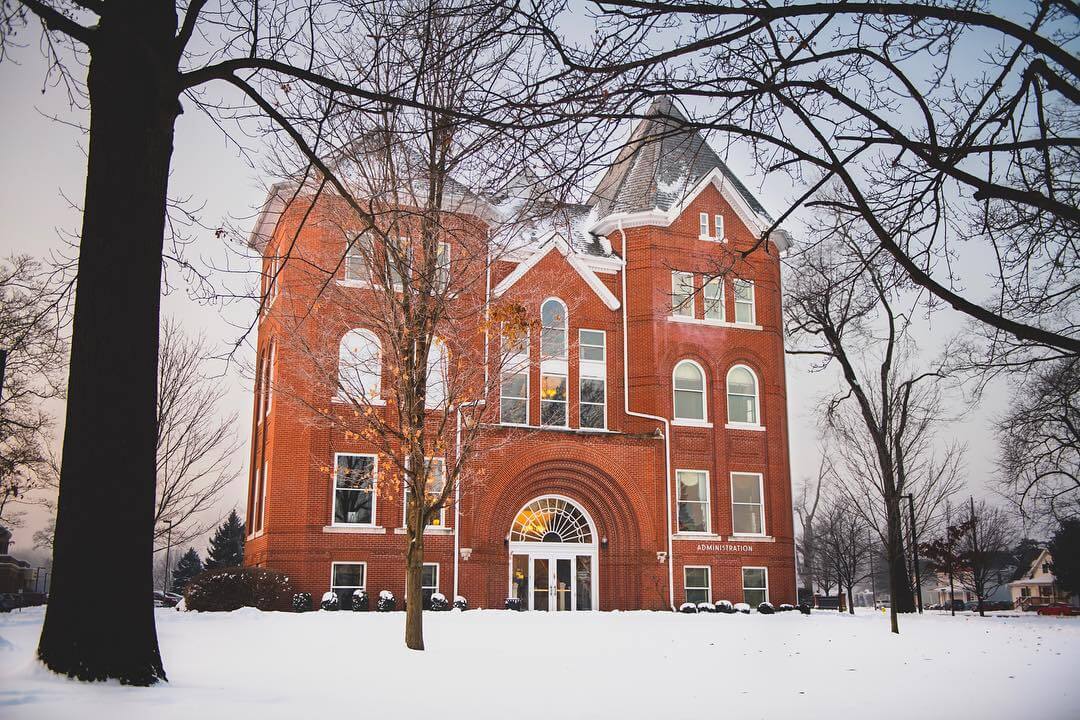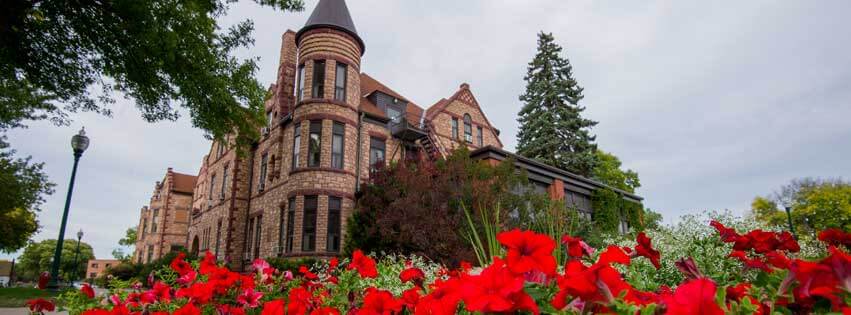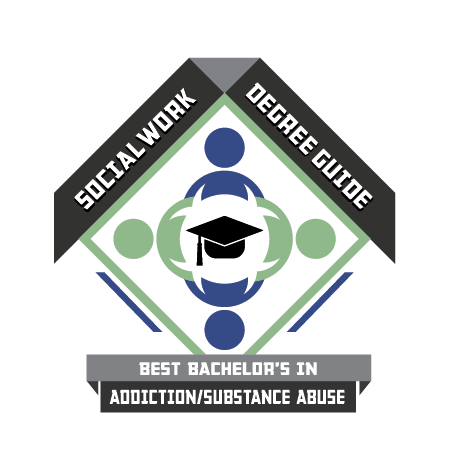
Are you service-oriented and looking for ways to help others? Have you considered a job as an addiction/substance abuse counselor? Millions of Americans confront issues of alcohol and drug abuse every year. According to the Addiction Center more than "20 million Americans over the age of 12 have an addiction." In fact, more than 2.6 million people have a dependence on both drugs and alcohol. It is something that impacts the lives of the addict as well as their friends and families. If you want to reach out and help with this chronic and growing problem, you can begin by completing a degree in Addiction/Substance Abuse. Our list of the 15 Best Bachelor's in Addiction/Substance Abuse is the ideal way to begin your journey toward a career helping others.
Most of the schools have accreditation through the National Addiction Studies Accreditation Commission. According to ONet Online, your work activities as an addiction/substance abuse counselor might include maintaining client records, writing reports and evaluations, counseling clients with substance abuse issues, collaborating with other professionals to begin to determine the best treatment plan for your client, and interviewing clients to gather the background information imperative in treating the addiction. To become an effective addiction/substance abuse counselor you must have the knowledge you gain during coursework and practical clinical experience. ONet Online suggests that you also have skills in active listening, a social perceptiveness that lets you be aware of and understand others, and critical thinking skills that help you identify solutions and approaches to problems. You will also learn to use a variety of types of medical software required for developing treatment plans and keeping accurate patient/client records and reports.
Why Become an Addiction/Substance Abuse Counselor?
A Bachelor's degree in Addiction/Substance Abuse can help you get a job as an addictions counselor, chemical dependency counselor, drug and alcohol treatment specialist, or substance abuse counselor. According to the Bureau of Labor Statistics, jobs as substance abuse counselors are expected to grow by more than 23 percent by the year 2026. According to PayScale a licensed substance abuse counselor can expect an average annual salary of $38,752. Those with mid-career experience can see salaries that range up to $52,006. As a drug and alcohol counselor, you may find employment in a variety of settings such as:
- Detox Centers
- Halfway Houses
- Health Care Facilities
- Mental Care Facilities
- Prisons
- Residential Treatment Centers
All states require licensing to be a drug and alcohol counselor. Many require that you pass tests to become a Licensed Professional Clinical Counselor. You may have to take the National Counseling Exam or the National Clinical Mental Health Counseling Exam in addition to the completion of a bachelor's degree and showing a specified number of clinical hours. While each of the schools has coursework that aligns to the requirements in that university's state, most coursework aligns with other state requirements. You should verify individual state requirements through the National Board for Certified Counselors website. There are several organizations that offer additional information and guidance for addiction and substance abuse professionals, including:
- Substance Abuse and Mental Health Services Administration. SAMHSA is part of the US Department of Health and Human Services. The organization's mission is to reduce the impact of substance abuse across the country. It is responsible for creating many training initiatives across the country for substance abuse counselors.
-
The Association for Addiction Professionals. NAADAC offers specialty certification for:
- Nicotine Dependence Specialist
- National Certified Adolescent Addiction Counselor
- National Endorsed Student Assistance Professional
- National Clinical Supervision Endorsement
- National Endorsed Co-Occurring Disorders Professional
- National Peer Recovery Support Specialist
- Recover to Practice Certification
- Conflict Resolution in Recovery Certification
- National Board for Certified Counselors. NBCC is the foremost credentialing association for counselors. It offers a specific set of education, testing, supervision, and experience guidelines. There are more than 65,000 National Certified Counselors around the world.
How to Choose a Bachelor's in Addiction/Substance Abuse
Social Work Degree Guide is here to help you find the perfect program for you. We factor in Student Satisfaction and Affordability as our primary metrics, at 30 percent of the total ranking each. From there Alumni Salaries, SAT Scores, and the school's retention rate each represent 10 percent. For more information on how SWG ranks Social Work degrees, please visit our About Us page.
Featured BSW Programs
#15. College of St. Joseph – Rutland, VT
Bachelor of Science in Alcohol and Substance Abuse Services
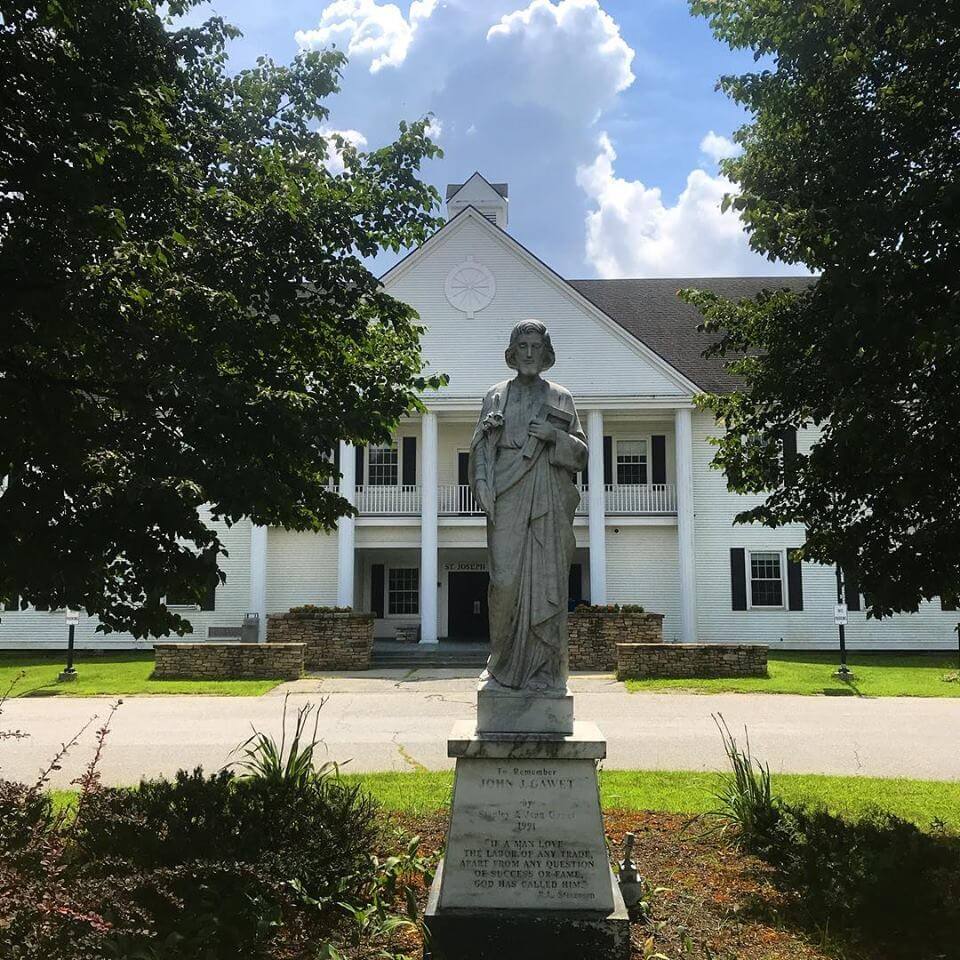
More Information
Tuition: $ 18,520
Score: 74
Unique Features
The College of St. Joseph, founded in 1956, is a nonprofit Catholic school. It's situated on a beautiful, wooded campus in Rutland, Vermont. Students can enjoy the welcoming atmosphere of downtown or get out into the nearby Green Mountains. CSJ, which ranked in The Economist's top colleges, offers 20 undergraduate degree programs. There is also a graduate school with 12 post-baccalaureate programs. You can complete a Bachelor of Science in Alcohol and Substance Abuse Services at CSJ. The program focuses on giving you an ethical and theoretical foundation in the field. You will examine the causes and effects of alcohol and substance abuse. By understanding the underlying causes, and impacts on society, you will be able to offer better solutions. The program matches SAMHSA national competencies. When you complete your BS in Alcohol and Substance Abuse Services, you will have the education and supervised experience necessary to test for Apprentice Substance Abuse Counselor certification in the state of Vermont. Courses at CSJ include 40 credits in General Education core courses, 20 General Electives, and 60 credits in your major. The program is a four-year, full-time program. Specialized courses include Foundations of Alcohol and Substance Abuse, Case Management & Counseling, and Family Dynamics. You will receive your Associates of Science in Human Service at the end of your second year of full-time study. During your BS program, you will complete a six-credit capstone course. This field experience in alcohol/substance abuse counseling gives you the opportunity to work hands-on in the field. Once you complete the BS in Alcohol and Substance Abuse Services you are eligible for admission in the fifth year certificate program. This lets you complete field work necessary to become a Certified Alcohol and Drug Abuse Counselor or a Student Assistance Professional.
#14. Rhode Island College – Providence, RI
Bachelor of Science in Chemical Dependency/Addiction Studies
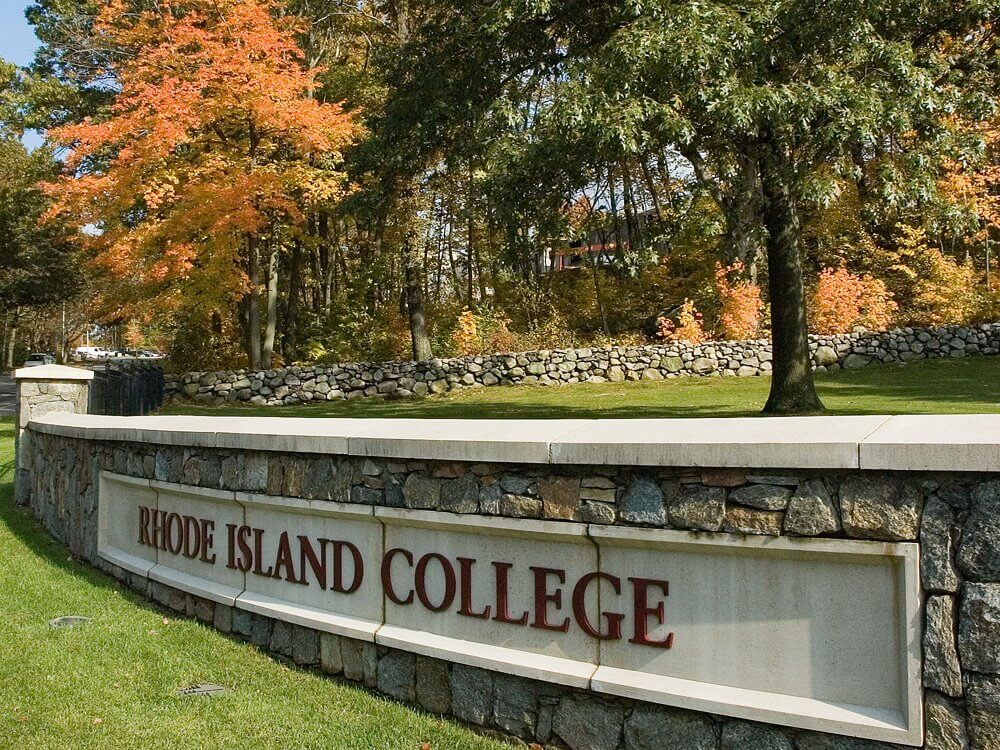
More Information
Tuition: $ 8,929 / $ 21,692
Score: 77
Unique Features
Rhode Island College is in the Mount Pleasant area of Providence, Rhode Island. Established in 1854, it is home to more than 9,000 students. The public institution has five schools and a department of Continuing Education. You can complete a Bachelor of Science in Chemical Dependency/Addiction Studies. CDAS, offered through the Psychology department, is a directed program that includes five professional development courses. The BS requires 120 credits, with at least 45 credits at RIC. You must complete Drugs and Chemical Dependency, Psychology of Human Diversity, and Theories of Psychological Intervention before your admission to the CDAS program. You will take other courses in Psychology, including Research Methods and Community Psychology. During your final year, you will complete an applied lab in advanced research methods. This course requires five contact hours each week. You will learn research analysis and design and then apply that research to human services. You will also complete a practicum in CDAS. This gives you the opportunity to practice intervention strategies under supervision. In your final spring semester, you complete an internship. This offers you the opportunity to gain field experience providing substance abuse counseling services. During your internship, you will also attend weekly sessions and conduct on-site visits. You will need to maintain a minimum GPA of 2.50 in your major to receive the BS in CDAS.
#13. Grand Canyon University – Phoenix, AZ
Bachelor of Science in Counseling with an Emphasis in Addiction, Chemical Dependency, and Substance Abuse
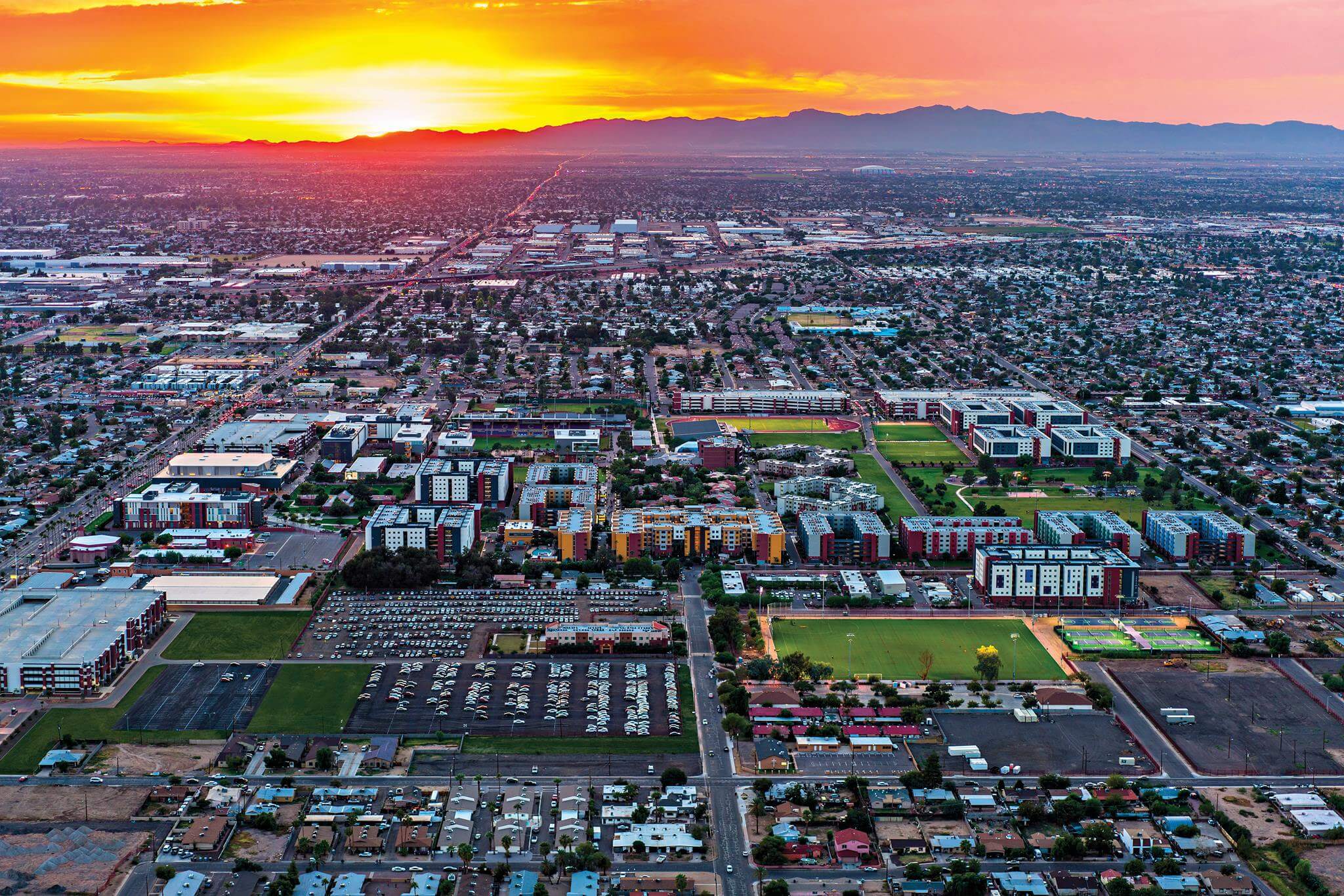
More Information
Tuition: $ 17,050
Score: 78
Unique Features
Grand Canyon University is a private Christian university in Arizona. It began in Prescott, just north of Phoenix, in 1949 with only 100 students. Two years later, it relocated to Phoenix. At the time, the Arizona Southern Baptist Convention owned and operated the college. The college became a university in the mid-1980s. Today, GCU welcomes more than 19,000 students to its West Phoenix campus. There are also 60,000 online students attending GCU. You can complete the Bachelor of Science in Counseling degree with an emphasis in Addiction, Chemical Dependency and Substance Abuse. The degree is through GCU's College of Humanities and Social Sciences. It is available both on the Phoenix campus and online. The Addiction Counseling BS is a 120-credit program. You examine the root causes of addiction and learn to treat addiction through a Christian worldview. The program includes both theoretical knowledge and hands-on application. It emphasizes the role of spirituality in recovery. You will complete 34 to 40 credits in General Education. These courses include University Foundations, English, Communications, Christian Worldview, Math, Science, Critical Thinking, History, Psychology, and Sociology. You will complete 72 credits in the major and eight to 14 credits in electives. The program courses include Foundations of Addiction and Substance Use Disorders, Spirituality and Addiction, and Psychopharmacology in Treatment of Addiction and Substance Use Disorders.
#12. Metropolitan State University – Saint Paul, MN
Bachelor of Science in Alcohol and Drug Counseling
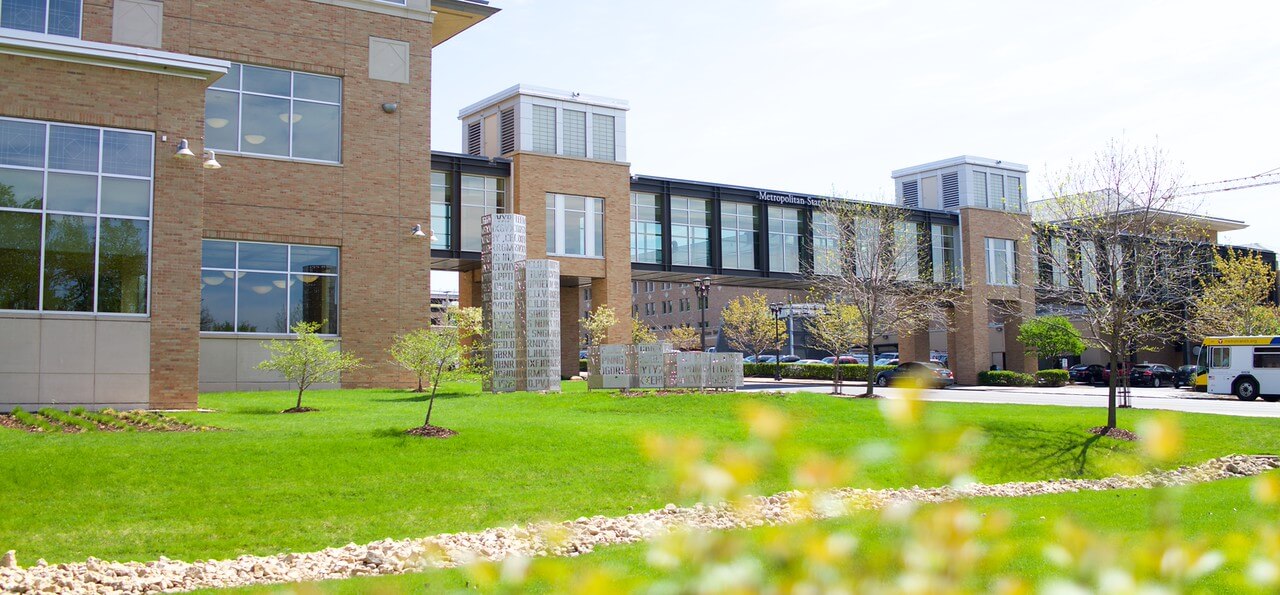
More Information
Tuition: $ 7,879 / $ 14,980
Score: 84
Unique Features
Metropolitan State University began as an upper-division bachelor-completion college in 1971. It began to offer graduate degrees in 1983. Then, in 1994, it began welcoming its first freshmen, offering complete bachelor degrees. Today there are more than 11,000 students. You can complete a Bachelor of Science in Alcohol and Drug Counseling at MSU. The ADC degree program prepares you to take and pass a licensure exam to work as an LADC. To receive the ADC, you must have a total of 120 credits. The program helps you examine ways to carry out interventions, develop addiction therapies, and get the skills necessary for licensure. Your 60 credits in ADC include Pharmacology of Addictive Drugs, Counseling and Interviewing Skills, Group Counseling, and Assessment of Substance Use Disorders. You will complete a senior seminar in Alcohol and Drug Counseling. In this four-credit course, which combines a senior seminar with a capstone project, you apply drug and alcohol counseling theories to the real world. You will also complete a nine-credit practicum. In the ADC practicum, you begin with a one-credit seminar, which helps you select a practicum. There are two internships which are each worth four credits and require you to use your skills in a clinical setting. You will also complete at least one elective. That might include Adolescent Substance Use Disorders, Substance Use and Native Americans, or Drugs and Behavior.
#11. Minnesota State University – Mankato, MN
Bachelor of Science in Alcohol and Drug Studies
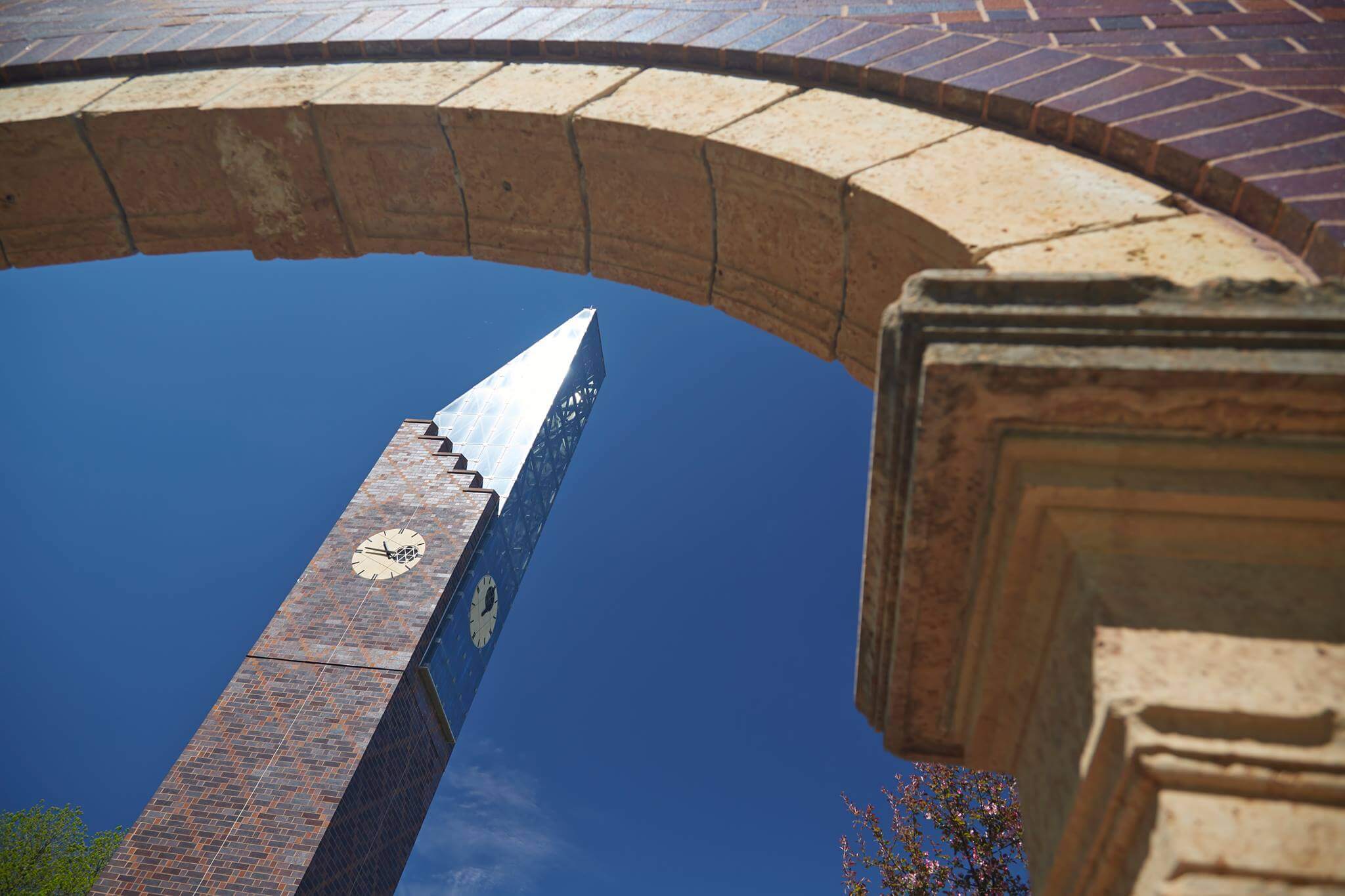
More Information
Tuition: $ 8,184 / $16,235
Score: 85
Unique Features
Minnesota State University, Mankato began in 1868 as the Mankato Normal School, with just 27 students. In 1998, it became Minnesota State University, Mankato. The university is about 85 miles outside of Minneapolis and home to more than 15,000 students. It offers undergraduate and graduate degrees. There are more than 130 undergraduate programs and 85 graduate programs available. Many of the programs are offered online or in combination with some study on campus. Minnesota State Mankato has six colleges. The College of Allied Health & Nursing offers an interdisciplinary Bachelor of Science in Alcohol and Drug Studies through the Department of Health Science. The program offers the academic work required for the Licensed Alcohol and Drug Counselor and BCC credentials in Minnesota. You must complete at least 32 credits before you can apply to the ADS program. That includes general education courses in Public Speaking, Communications, Psychology, and Sociology. The major also requires 30 credits. Those courses include Alcohol and Drug Studies, Ethics and Professionalism for Addictions Professionals, Group Procedures, and Law and Chemical Dependency. As a student in the Health Sciences Department, you will also need to complete nine electives that might include Medical Terminology or Introduction to Epidemiology. You earn the final 12 credits through an ADS internship. You must pass a background check before you can complete your internship. This gives you clinical experience while completing your degree. The 12 credits encompass 880 hours working in a hospital, treatment center, correctional facility, or halfway house in cooperation with your coordinator. Once you have the 880 hours and your associate degree, you can get a temporary permit to work while awaiting licensure.
#10. University of Detroit Mercy – Detroit, MI
Bachelor of Science in Addiction Studies
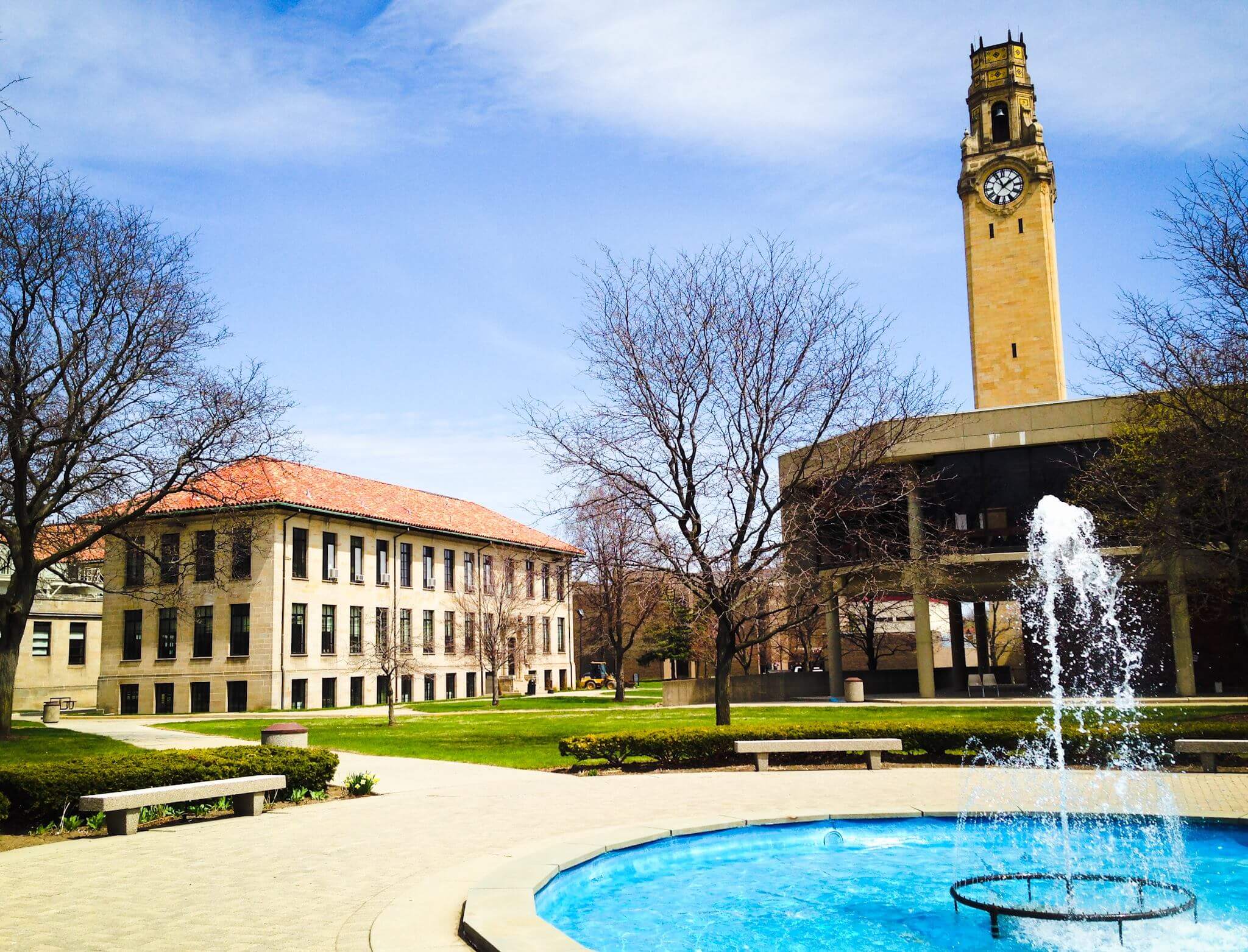
More Information
Tuition: $ 28,000
Score: 85
Unique Features
The University of Detroit, founded in 1877 by the Jesuits, merged with Mercy College in 1990. Today, the University of Detroit Mercy has more than 5,000 students in 100 different degree programs. Military Friendly Schools designated Detroit Mercy as a military friendly school. To serve the community, the university offers many outreach services such as the McAuley Health Center and the Counseling Clinic. You can complete a Bachelor of Science in Addiction Studies through the College of Liberal Arts & Education. The major in Addiction Studies requires a strong liberal arts background. Students complete courses in psychology, science, and humanities. You can pursue the BS in Addiction Studies either on a full-time or part-time schedule. Classes are available on the McNichols or Clinton Township campuses. You must complete the core Detroit Mercy requirements which include a total of 126 credit hours to receive the BS degree before you can apply to the Addiction Studies program. The Addiction Studies degree requires 30 credits in your major, where you explore methods for assessment, referral, and treatment of addictions. Those courses include Introduction to Addiction Studies, Assessment of Substance Use Disorders, and Group Methods. You will take nine credits specifically focusing on issues such as Substance Use in Youth, Gambling and Sexual Addiction, or Spirituality and Recovery. You will also take 24 credits in various supporting courses such as Biology, Psychology, Statistics, and Algebra. Detroit Mercy requires students to complete an internship. Each internship offers 400 hours of clinical placement. During that time, you have an opportunity to complete hands-on supervised clinical work. When you complete the BS with a major in Addiction Studies at Detroit Mercy you are eligible to apply for a development plan to pursue the Certified Addiction and Drug Counselor credential with the State of Michigan.
#9. Drexel University – Philadelphia, PA
Bachelor of Science in Behavioral Health Counseling
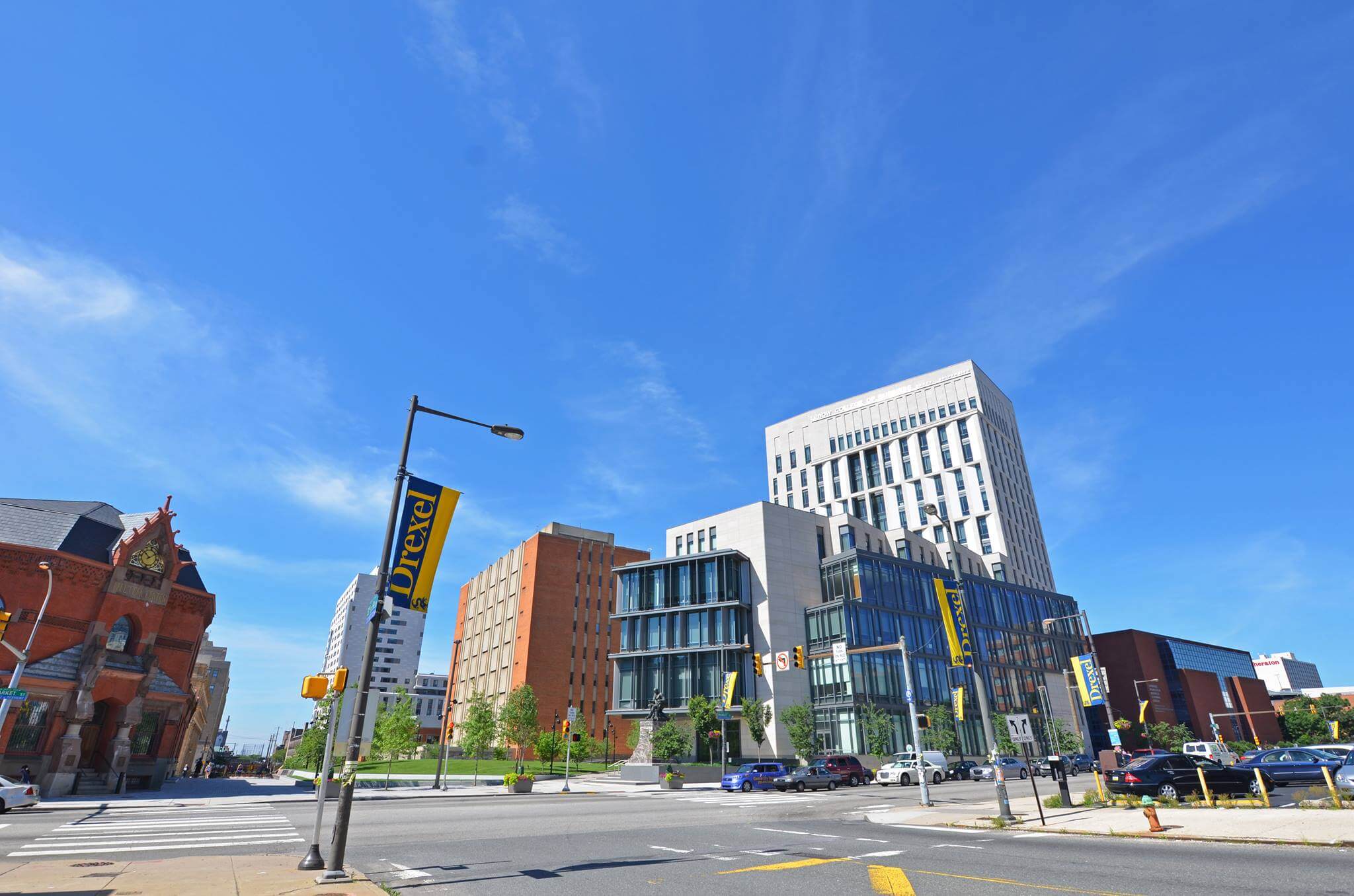
More Information
Tuition: $ 53,244
Score: 85
Unique Features
Drexel University began in Philadelphia in 1891, the vision of financier Anthony Drexel. Drexel began offering a Bachelor of Science degree in 1914. By 1965, it also offered doctoral degrees. Today the renowned research university has more than 24,000 students, making it one of the country's 15 largest private schools. Drexel has 15 colleges and schools, including the College of Nursing and Health Professions, which offers a Bachelor of Science in Behavioral Health Counseling. The BHC program at Drexel is a competency-based, four-year program. During your studies for the BHC, you focus on practical applications for treating substance-use disorders. Drexel's City Health Sciences campus is also home to the Clinical Learning Resource Center. This gives you, as a BHC student, a chance to develop counseling skills in a simulated lab. You complete foundation courses in Communications, English, Biology, Math, Anthropology, Psychology, and Sociology. You take Behavioral Health Counseling courses that include Counseling Theory and Practice, Addictive Disorders, Group Counseling, and courses in Assessment and Treatment Planning. The BHC degree also requires co-op experience in a real-world clinical setting. You can also specialize your degree with a minor in Addictions Counseling. This includes courses in Recovery and Relapse Prevention, Multicultural Counseling, Psychopharmacology for Counselors, and Co-Occurring Disorders. The Pennsylvania Certification Board has accredited all BHC courses at Drexel, this is critical for those who are planning careers as addiction counselors.
#8. St. Cloud State University – St. Cloud, MN
Bachelor of Science in Chemical Dependency

More Information
Tuition: $ 8,265 / $ 16,499
Score: 85
Unique Features
St. Cloud State University, founded in 1869, is home to more than 14,000 students. Not only does St. Cloud State offer more than 200 undergraduate majors and 60 graduate programs, but it also has a beautiful campus. The campus is on 100 acres in the Beaver Islands along the Mississippi River in St. Cloud, Minnesota. St. Cloud State offers a Bachelor of Science in Chemical Dependency. The program combines coursework with fieldwork, providing the tools necessary to work as a substance abuse counselor. Students learn assessment, intervention, prevention, and counseling techniques. The courses prepare you for completing the Minnesota Licensed Addictions and Drug Counselor certification. Many of the courses are available online which allows students to complete their BS degree on their own schedule. You will fulfill 81 credits in the major including background courses such as Psychology, Statistics, Counseling Theory and Practice, and Group Process. Your core Chemical Dependency courses include Professional Issues in Addiction, Foundations of Addictions, and Psychopharmacology and Addictions. You will also complete a supervised internship. Your actual time in the clinical setting determines the amount of credit you receive for the internship. St. Cloud State does offer various scholarships to attend the program and to work toward licensure.
#7. University of Central Arkansas – Conway, AR
Bachelor of Science Degree in Addiction Studies
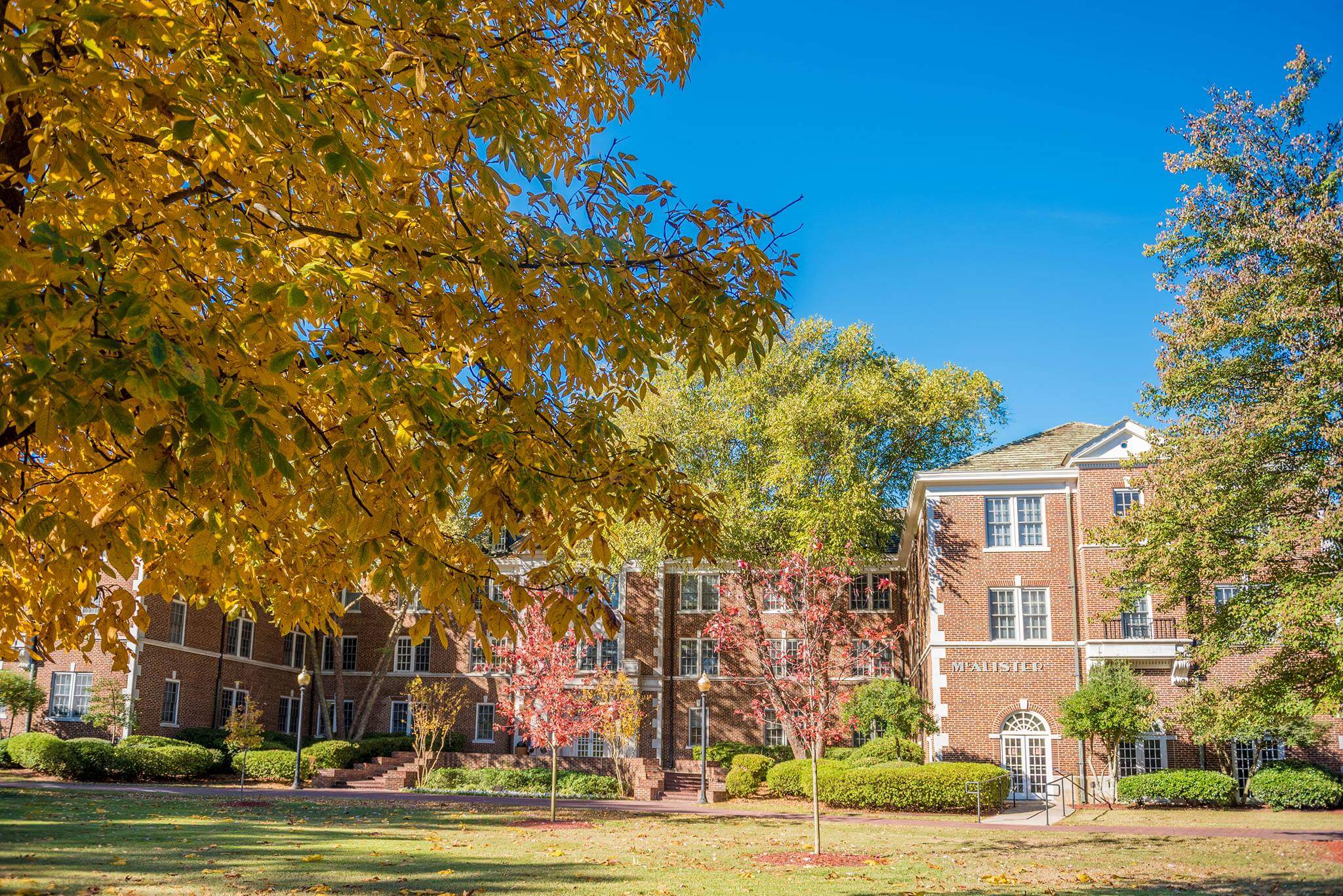
More Information
Tuition: $ 8,752 / $ 15,275
Score: 91
Unique Features
The University of Central Arkansas, located in Conway about 30 miles north of Little Rock, is home to more than 11,000 students. Founded in 1907 as a teacher's college, it now offers undergraduate, graduate, and doctoral degrees. UCA is the only university in Arkansas to offer a Bachelor of Science in Addiction Studies. The program focuses on preparing you to become an addiction counselor. To receive the BS degree, students need to complete 47 hours of General Education courses. There are three core courses: Mental Health, Theory and Practice of Prevention, and Drug Education. You will also need 17 hours in associated courses, which can include Statistics and Abnormal Psychology. You can then choose one of two tracks: Treatment or Prevention. The Treatment track requires 29 hours and includes courses in Addiction Counseling, Group Counseling, and Legal and Ethical Issues in Addictions. You will also complete a practicum in Substance Abuse. If you select the Prevention Track, you complete 25 hours in courses such as Prevention Practicum, Theoretical Bases of Health Education, and Epidemiological Research. You will also take an Internship in Prevention. For both tracks, you may select a declared minor for the remaining credits.
#6. Indiana Wesleyan University – Marion, IN
Bachelor of Science in Addictions Counseling
More Information
Tuition: $ 26,630
Score: 91
Unique Features
Indiana Wesleyan University is a Christian school in Marion, Indiana. Founded in 1920 by The Wesleyan Church, IWU is Indiana's largest private college. There are about 3,000 students in traditional on-campus programs. Another 10,000 students attend online classes. IWU offers more than 80 undergraduate degrees along with 38 graduate degrees and five doctoral programs. IWU has six schools and colleges: College of Arts and Sciences, College of Adult and Professional Studies, School of Nursing, School of Health Sciences, the Graduate School, and Wesley Seminary. The Division of Behavioral Sciences, which is part of the College of Arts and Sciences, offers a Bachelor of Science with a major in Addictions Counseling. The program is a balance of theory and real-world practice in substance abuse counseling. It prepares you to begin the licensure process for alcohol and drug counselors in Indiana. The spiritual aspects of recovery play a central role in the Addictions Counseling Program at IWU. Before you can gain full admission to the program, you must complete courses in Addictions Theory and Psychopharmacology. All students complete a formal interview with the Addictions Counseling Committee prior to admission. Once accepted, you must have 30 hours in Addictions, 12 hours in Psychology and three hours in Sociology. Your required addictions courses include Addiction Counseling Skills, Addictions Seminars, and Intergroup Relations. A key component of IWU's Addictions Counseling degree is that you take part in activities that help you develop your counseling skills. Those include local Drug Court research, work with Grace House for Recovery, and a senior practicum. You must complete at least 350 hours of practical experience to receive the Addictions Counseling degree. You must take the National Alcohol and Drug Counselor's Exam during your practicum.
#5. Minot State University – Minot, ND
Bachelor of Science with a Major in Addiction Studies
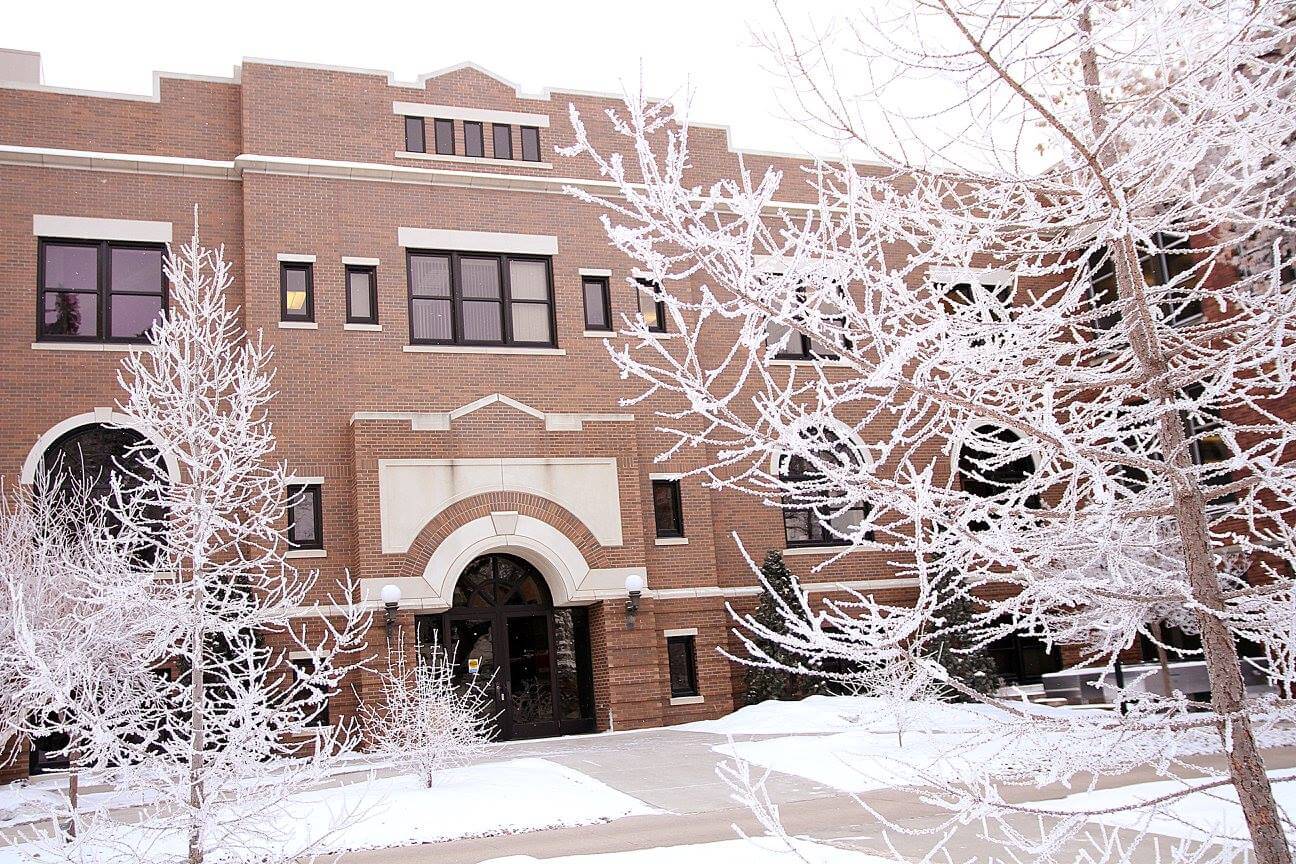
More Information
Tuition: $ 7,064
Score: 92
Unique Features
Minot State University, founded in 1913, is home to more than 3,000 students. According to BestColleges.com, Minot State is the country's third most affordable university. With a 12:1 student-to-faculty ratio and more than 100 areas of study, you can get the quality education you want. Minot State offers undergraduate and graduate programs through four colleges: College of Business, College of Education & Health Sciences, College of Arts & Sciences, and the Graduate School. It offers a Bachelor of Science with a Major in Addiction Studies through the College of Education & Health Sciences. The 120-credit hour Addiction Studies program requires General Education courses as a foundation and there are 66 credits required in core courses. Those include nine Psychology courses, seven addiction courses, and courses in Sociology, Social Work, and Humanities. Your addiction courses include Dynamics of Addiction, Psychopharmacology, and Group Dynamics. You will need to complete an Addiction Studies Practicum. This gives students the opportunity to apply counseling theories in a hospital or clinic setting. Minot State offers internships giving students supervised, hands-on work experience. The State of North Dakota requires a nine-month supervised clinical experience before you can be a licensed addiction counselor. By completing your internship at Minot State, you are eligible to take the state licensure exam. As a student in the Addiction Studies program you will also have a chance to join the university's Psychology & Addiction Studies Club. PASK gives you more hands-on opportunities outside the classroom.
#4. University of South Dakota – Vermillion, SD
Bachelor of Science in Addiction Studies
More Information
Tuition: $ 9,061 / $ 12,425
Score:95
Unique Features
The University of South Dakota, founded in 1862, is the state's oldest university. The campus is in beautiful Vermillion, set on 274 acres overlooking the Missouri River. There are 198 undergraduate and 78 graduate programs at USD. Today, there are more than 10,000 students enrolled in both on-campus and online programs. USD offers a Bachelor of Science degree in Addiction Studies. The South Dakota Board of Addiction and Prevention Professionals sanctions the ADS program. Graduates are eligible for credentialing through the SDBAPP. The 120-hour degree program requires 30 ADS core courses, six specialization courses, and nine electives alongside classic General Education courses. You will apply for formal admission to the major during your sophomore year and will need to complete a successful background check before your admission into ADS. The USD program blends theory and practice. You learn theories about the nature, prevention, and treatment of substance abuse issues. You then learn the practical application of those theories in a real-world setting. The core ADS courses include Alcohol Use & Addiction, Drug Use & Addiction, and Addictive Family Systems. You complete two practicums on Individual and Group Addiction Counseling. In both practicums, you get supervised practical experience in counseling. You will also complete field experience, worth up to 12 credits. This is on-the-job learning under your instructor's supervision. USD offers two areas of specialization for the ADS degree: Treatment or Prevention. You may choose one or both, using the added coursework as part of your electives. Other electives include Adolescent Substance Use, Gambling, and Co-Occurring Trauma.
#3. University of St. Francis – Joliet, IL
Bachelor of Arts in Substance Abuse Counseling
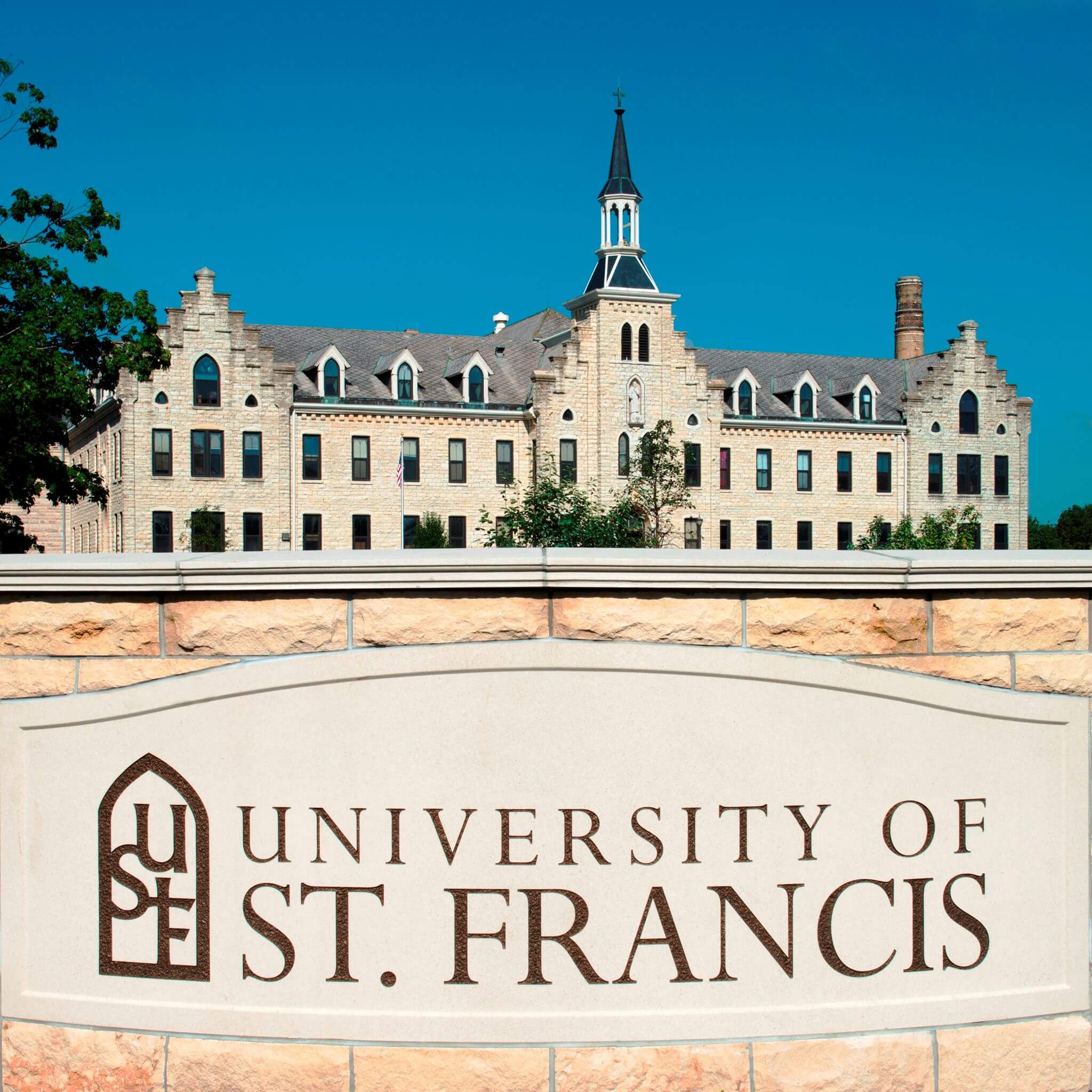
More Information
Tuition: $ 30,430
Score: 97
Unique Features
The University of St. Francis began in 1920 as a college for women. At that time, it was only open to women of the local congregation of the Third Order of St. Francis of Mary Immaculate in Joliet, Illinois. It opened to all women in 1925 and became co-educational in 1971. Today, the Catholic university has almost 4,000 students in undergraduate and graduate programs. It ranks on the Best Colleges: Region by Region list for Midwestern schools by The Princeton Review. You can complete a Bachelor of Arts in Substance Abuse Counseling through the St. Francis College of Arts & Sciences. The Illinois Certification Board recognizes the St. Francis SAC program as an Advanced Accredited Training Program. When you receive your degree from St. Francis, you are qualified to take the Certified Alcohol and Other Drug Counselors certification exam in Illinois. The liberal arts program is important at St. Francis. It gives you a broad background in psychology, social work, nursing, as well as criminal and social justice. You will combine that coursework with a practicum and field experience to prepare for a career as a substance abuse counselor. To receive the BA in SAC, you will complete 49 hours in your major. Those courses include Chemical Dependency, Group Dynamics, and Advanced Techniques in Substance Abuse Treatment. You will take two practicums, or internships, that give you supervised field experience. Throughout this experience, you will meet with your peers to discuss pertinent casework. You also complete a final Capstone Experience after your practicum. This gives you the hands-on opportunity to develop treatment planning skills and put your psychotherapy principles into practice.
#2. University of Cincinnati – Cincinnati, OH
Bachelor of Science in Substance Abuse Counseling

More Information
Tuition: $ 11,000 / $ 27,334
Score: 99
Unique Features
The University of Cincinnati is home to almost 46,000 students. Founded in 1819, it is now a major research institution. U.S. News & World Report referred to UC as "among the top tier of the Best National Universities." UC is an innovative school, scientists from the school invented Benadryl, the heart-lung machine, and the oral polio vaccine. UC believes that students need an opportunity to learn both theory and real-world applications. It invented the co-op system, where students work on the job during their education. You can receive a Bachelor of Science in Substance Abuse Counseling through UC's School of Human Services at the main campus or online. Students complete a General Education core including courses such as English, Statistics, Humanities, Arts, and Science. The Substance Abuse Core requires 72 credit hours to complete and consists of Substance Abuse Counseling, Assessment and Diagnosis, Co-Occurring Disorders in Treatment, and Case Management and Treatment Planning. You will complete two internships while working toward the SAC degree. This supervised field experience gives you a chance to blend coursework with the real world. You also complete a Senior Capstone Experience. This is an opportunity to integrate your expanse of knowledge in substance abuse counseling. You merge course work with research, field studies, and treatment strategies. During the Capstone Experience, you also work on required licensure content.
#1. Northwestern State University – Natchitoches, LA
Bachelor of Science in Addiction Studies
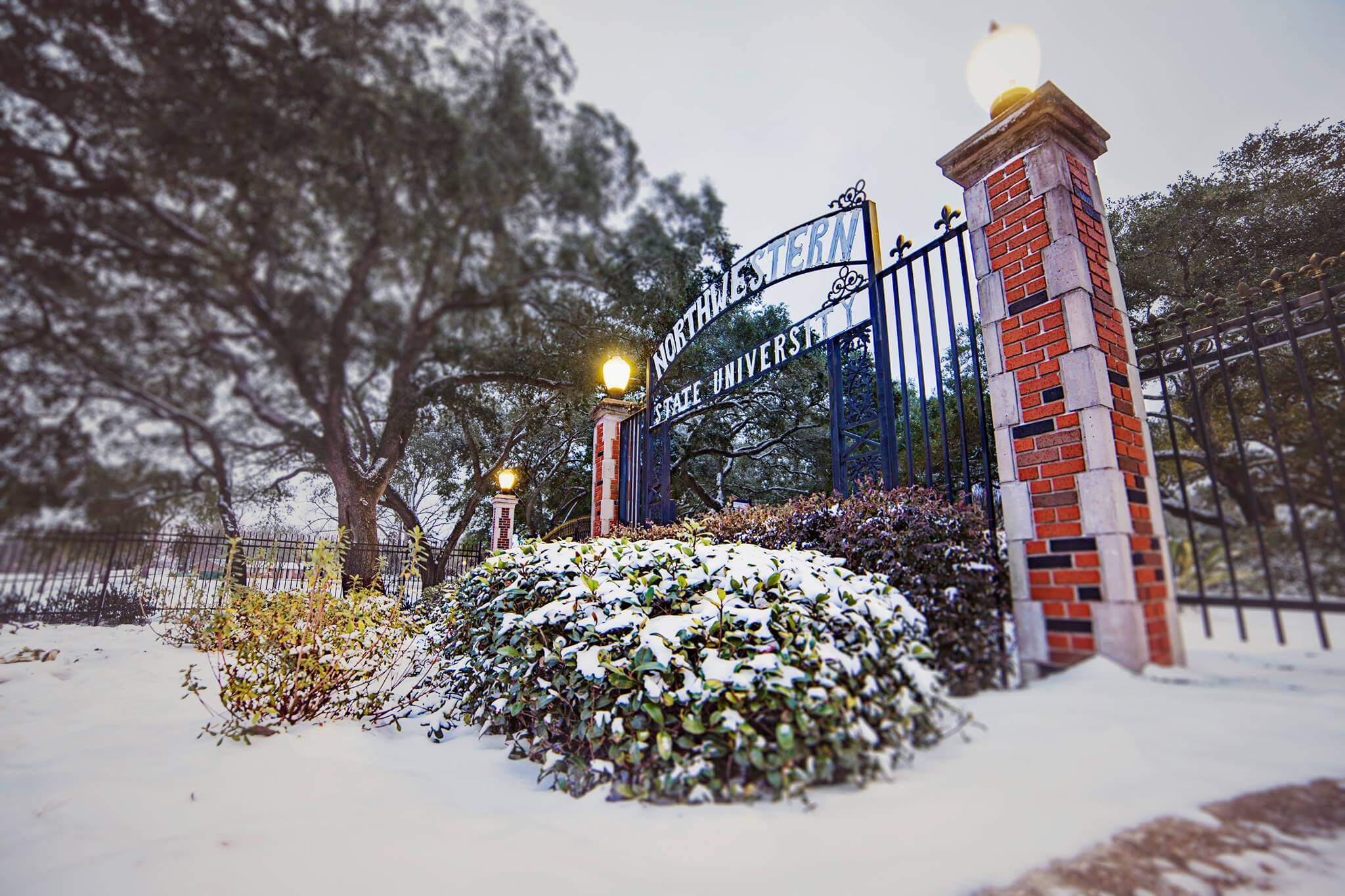
More Information
Tuition: $ 7,922 / $ 18,710
Score: 100
Unique Features
Northwestern State University, with its original campus in Natchitoches, Louisiana, began as a two-year college in 1884. It evolved from a single old mansion on a hillside to a university with many campuses. You can study at the main campus or in Alexandria, Leesville, or Shreveport. NSU also has partnerships with Barksdale Air Force Base, Bossier Parish Community College, and with the Tunica-Biloxi Cultural and Educational Resources Center in Marksville. There are also students in NSU's online program. There are more than 10,000 students enrolled at NSU. Students can receive a Bachelor of Science in Addiction Studies. The school ranked No. 6 in the U.S. for Most Affordable Online College for Substance Abuse Counseling Degrees by GuidetoOnlineSchools.com and OnlineU.org. NSU also ranked as a Top Military-Friendly University. This makes a degree possible for military members, veterans, and their families, no matter where they may be located. As you work toward your BS in Addiction Studies at NSU, you will complete 120 credit hours. The General Education courses include English, Math, Natural Sciences, Fine Arts, Humanities, Social Science, and Psychology. Students then complete 30 credits in Psychology and 30 credits in Addiction Studies. The Addiction Studies courses include Family Dynamics, Screening and Assessment, Case Management, and Pharmacology of Addiction. For those who prefer more freedom in their schedule the BS in Addiction Studies is also available completely online.

